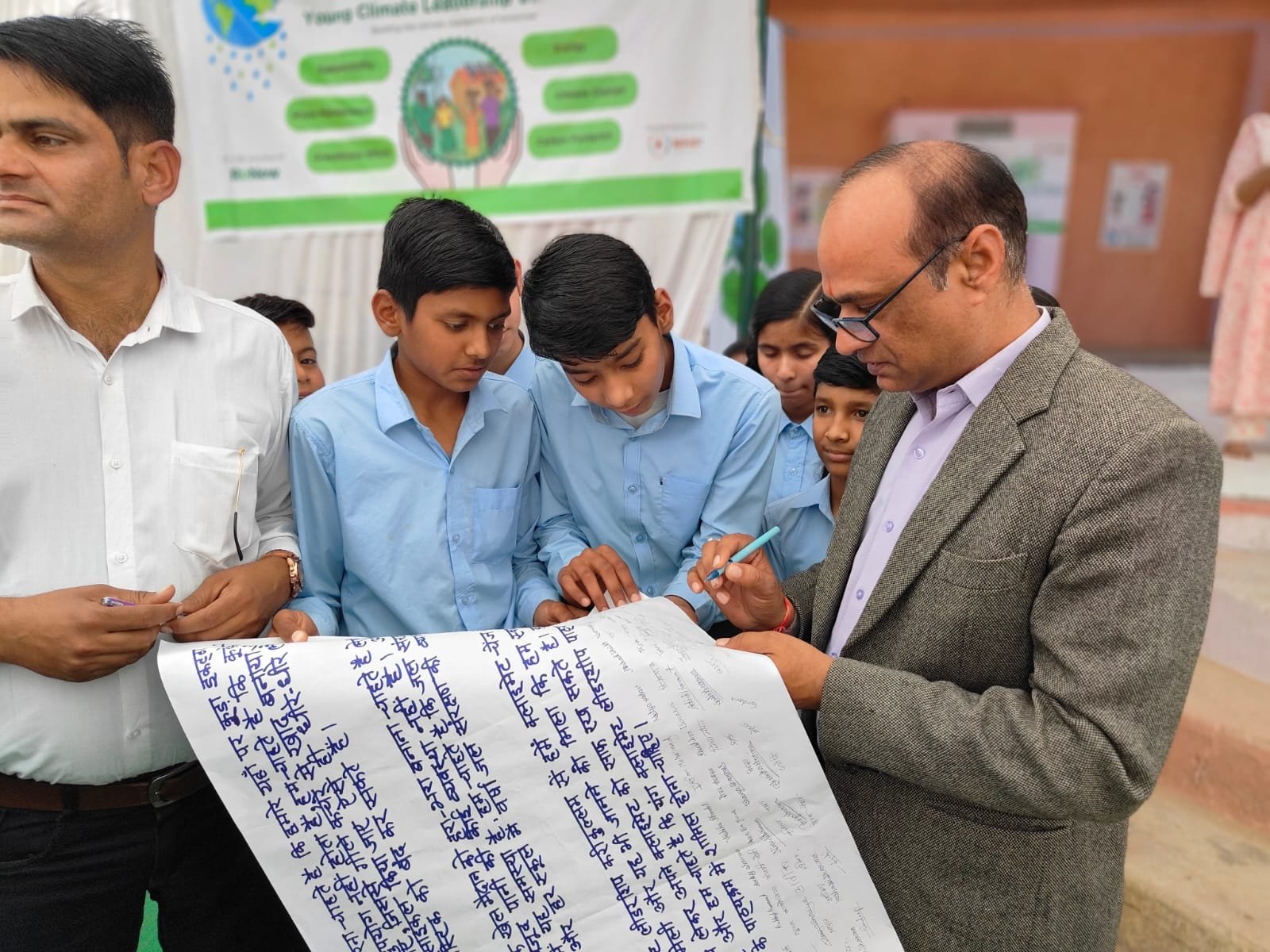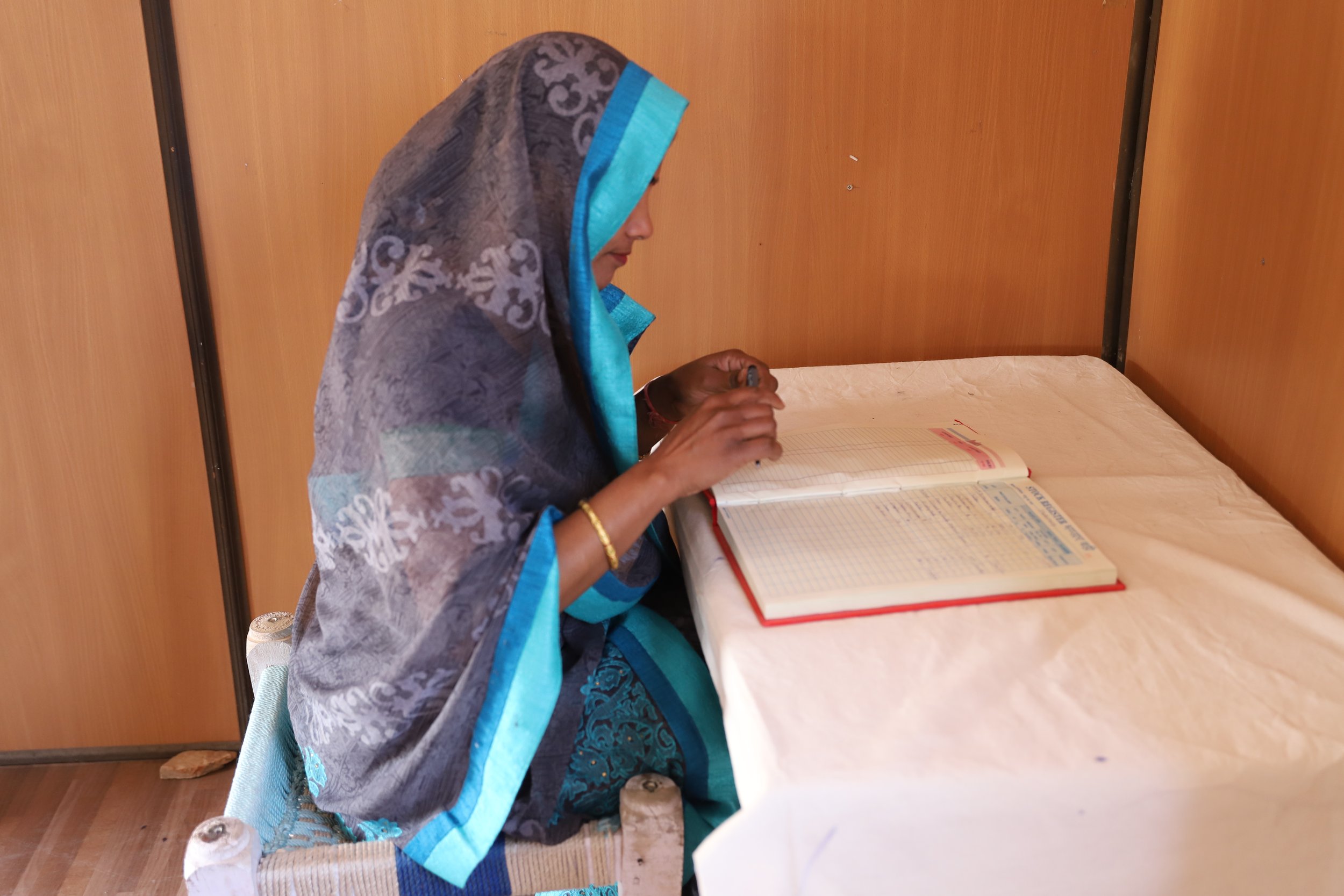Solar engineer Sanju Devi is holding a solar lantern that she made herself.
28-year-old Sanju's story is a beacon of hope and transformation. Her journey from a limited educational background to becoming a solar engineer is a testament to resilience and the power of empowerment.
Sanju’s formal education ended after the 8th grade. Like many women in her community, societal norms and family expectations curtailed her academic ambitions. Her in-laws believed that if women were more educated than their husbands, they might leave their marital homes. Accepting her fate, Sanju devoted herself to her family, raising her two young children, now aged 7 and 8. Despite these challenges, Sanju never lost her desire to learn and grow. Her turning point came when she enrolled in a five-month solar engineering training program supported by Royal Rajasthan Foundation and implemented by Bindi International.
Sanju Devi learning colour code during her training at Bindi International campus in Harmara village, Kishangarh.
This comprehensive program was a game-changer, equipping her with technical skills in repairing, installing, and assembling solar equipment. Additionally, it introduced her to essential digital tools like WhatsApp, Zoom, Google Drive, and the BHIM app for financial transactions, enhancing her digital literacy and connectivity.
Sanju Devi with other solar solar engineering trainees in classroom.
One of the standout components of the training was the sales module, where Sanju and her peers learned how to craft and deliver effective sales pitches. This skill is crucial for spreading the adoption of solar technology in rural areas, where word-of-mouth and personal trust play significant roles in decision-making.
Armed with her new skills and knowledge, Sanju returned to her village with a mission: to electrify 50 households using solar power. This endeavor is not just about bringing light to homes; it’s about illuminating a path to sustainable development and self-reliance for her community. By providing access to clean, renewable energy, Sanju is helping to reduce dependency on traditional, polluting energy sources and improving the quality of life for her neighbours.
During an interaction, Sanju shared her reflections on her journey. She spoke candidly about her education and the societal barriers she faced. However, she also expressed her unwavering commitment to her children’s education. “I want my children to have the opportunities I didn’t,” she said. “I want them to be educated and lead their lives in a better way.”
Sanju's story is a powerful reminder of the impact that education and skill development can have on individuals and communities. It underscores the importance of providing women with opportunities to learn and grow, regardless of societal constraints. Programs like the one offered at Bindi International Harmara are crucial in bridging the gender gap in education and employment, fostering a generation of women who are not only skilled but also empowered to lead and innovate.
As Sanju works to light up her village, she is also lighting up a new path for her children and many other women who look up to her as a role model. Her journey from a housewife with limited prospects to a solar engineer electrifying her community is an inspiring testament to what can be achieved when women are given the tools to succeed.
Sanju’s story is just one among many, but it carries a universal message: with education, support, and determination, women can overcome societal barriers and drive meaningful change in their communities.



































